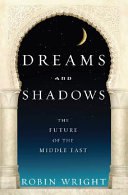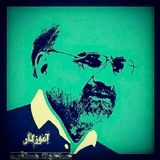tgoop.com/Soroush_Philosopher/5783
Last Update:
Abdulkarim Soroush was an Iranian revolutionary who soured on the Islamic Republic. I met him at Tehran University, after he became the father of the country’s reform movement, in the nineteen-nineties. Soroush was known as the Martin Luther of Islam because—like the catalyst for the Protestant Reformation, in the sixteenth century—he challenged the absolutist beliefs and abusive practices of a faith. Soroush, a British-educated philosopher, infuriated Iran’s theocratic rulers by arguing that individual freedoms preceded religious belief. “The first pillar is this: To be a true believer, one must be free,” he told me, in 1995. “To become a believer under pressure or coercion will not be true belief. And this freedom is the basis of democracy.” A few months after that discussion, I was at the Jefferson Memorial, in Washington, D.C., and saw four quotes on its walls. I took photos and carried them back to Iran on my next visit. I laid the four pictures out on Soroush’s oak desk. One of them read, “Almighty God hath created the mind free. All attempts to influence it by temporal punishments or burdens . . . are a departure from the plan of the Holy Author of our religion.” Soroush read each one, then took off his wire-rimmed glasses. “Exactly,” he pronounced.
Soroush subsequently wrote about the need to separate mosque and state. He argued that the Supreme Leader could not be above the law—or possess powers to override the President, veto legislation, overturn judicial verdicts, or disqualify candidates from running for office. Soroush was increasingly harassed and threatened. In 2000, he fled to the West. He did teaching or research stints at Harvard, Princeton, Georgetown, Stanford, Columbia, and the Library of Congress. He is now an American citizen and lives in California. One of his sons works for Microsoft in Seattle.
“My life here has been a happy experience. I have the freedom to think and write and lecture—all the things denied to me in my own country,” he told me last week. But he is haunted by current events in his new home. America formerly demonstrated an ability to absorb big changes—a hallmark of democracy, he said. “The United States, after the black movement led by Martin Luther King, Jr., became a different country. If it had happened in another place, it could have caused a revolution, but here the system could absorb it.” To the outside world, America appeared to be a place to find justice and fairness. “But nowadays, I see a different face,” he said. “Something is going badly wrong in this country.”
America today is a capitalist democracy more than a liberal democracy, Soroush said: “Capital is the tyrant here.” Even justice—“the pounding heart of democracy”—has become expensive, he added. “I greatly fear that this may be lost—due to racism, and capitalist democracy and the justice system becoming weaker for the poor. Heaven forbid, if that happens, America would not be the aspiration of anyone in the world.”
https://www.newyorker.com/news/our-columnists/to-the-world-were-now-america-the-racist-and-pitiful
BY عبدالکریم سروش و فلاسفه

Share with your friend now:
tgoop.com/Soroush_Philosopher/5783
